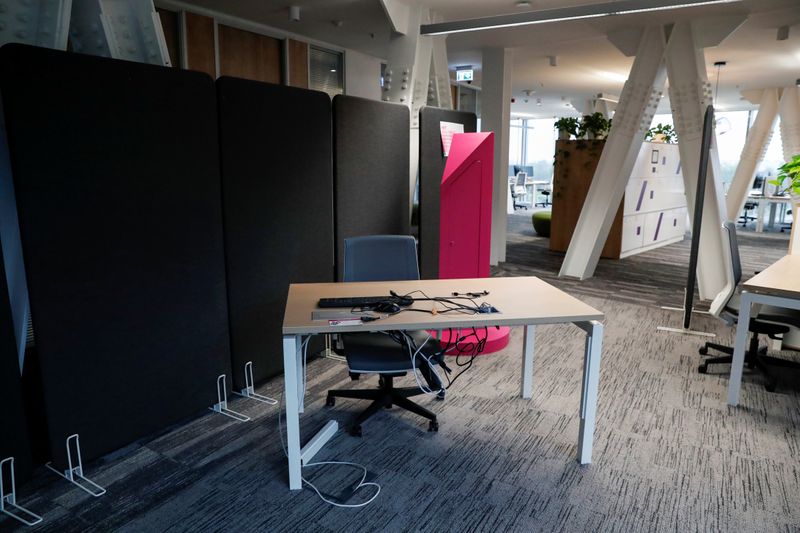This post was originally published on this site
https://i-invdn-com.akamaized.net/trkd-images/LYNXMPEG9D0SX_L.jpg
BUDAPEST (Reuters) – Locked into a 15-year lease agreement, Magyar Telekom (BU:MTEL) is considering subletting some of its new headquarters, one of several options under review as the coronavirus pandemic upends long-term plans for Hungary’s largest office building.
The Deutsche Telekom (DE:DTEGn) unit, one of Hungary’s biggest companies which employs more than 7,000 people, had spent just over a year working in the state-of-the-art office complex on the outskirts of Budapest.
When the first wave of the pandemic hit and Hungary went into lockdown, the 58,000 square-metre building was closed. After a short reopening, most employees were told to work from home again from September as COVID-19 cases in Hungary surged.
Of 5,500 employees normally working in the building, only 150-200 were on site under strict hygiene regulations early this week.
“Our management has decided that when normal business resumes, 40% of our employees will be working from home,” Corporate Communications Director Istvan Kutas said in the empty offices, where most hallway lights were out.
“An average employee will work two days per week from home,” he said. “There will be people who never work from home, but some will be doing so permanently.”
As of Wednesday, Hungary had reported 40,782 coronavirus cases with 1,023 deaths. The daily COVID-19 death toll on Tuesday hit a record 28.
The company, which launched its commercial 5G service in April with employees working remotely, is exploring ways to utilise some vacant office space, as renegotiating its long-term lease contract with property developer Wing is not an option.
Magyar Telekom did not say how much it pays for the lease, which commercial real estate sector sources say could cost between 14 to 18 euros per square metre a month, bringing its annual cost to around 10-12.5 million euros.
Both companies declined to comment on details of the contract.
“We are looking at several options, including inviting some of our close partner companies into our headquarters, as well as moving employees in from other offices and selling those properties,” Kutas said.
He declined to give further details about plans. It was unclear when staff could return to the building, which boasts three underground parking floors, a pond and a rooftop jogging track.
Kutas said the company spent half a billion forints ($1.64 million) on protecting its facilities from COVID this year, including more frequent cleaning and coating some surfaces with a lasting disinfectant.
Magyar Telekom expects to incur costs worth hundreds of millions of forints as it needs to provide employees with masks and other protective gear.
Agnes Sziget, who works in Magyar Telekom’s human resources department, said she had not felt an impact on her productivity while working from home, but she missed the office atmosphere.
“Virtual sessions can never replace face-to-face meetings,” she said. “I miss my colleagues, our interactions and shared laughter the most.”

